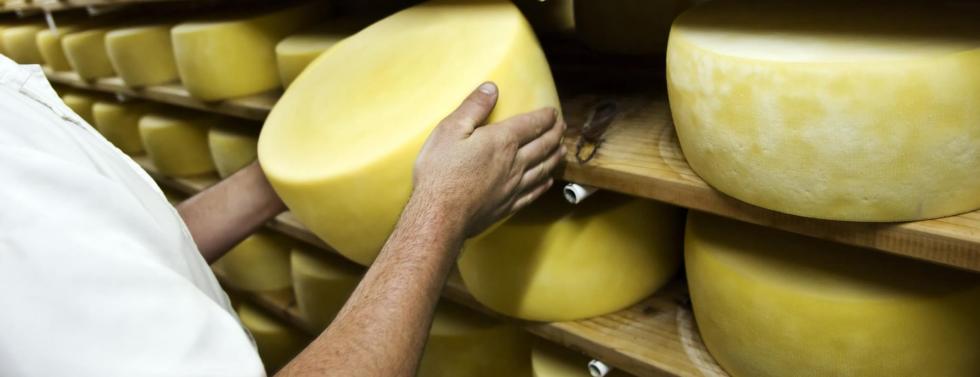Relocating is never easy, especially when it’s a transatlantic move. Mary Petiet shares her story of adaptation and acceptance.
“The snake can also shed its skin, which we can imagine as a metaphor for the idea of the stages of life, or even the idea of successive lives.”—Mary Petiet, Minerva’s Owls
“It would be all so easy if you had a map to the Maze. If the same old routines worked. If they’d just stop moving “The Cheese.” But things keep changing …”—Dr. Spencer Johnson, Who Moved My Cheese?
Two weeks ago we finished shedding our skins and moved the cheese.
We are starting a new adventure. We have given away, sold, or donated most of our possessions. Right now we each have one trunk full of Important Things, one suitcase full of clothes, and six boxes of winter gear in transit to arrive at a later date.
All family heirlooms have been wrapped, boxed, and stored in the attic, making me wonder if I am actually a curator for the next generation, but that is another story. We have rented our home of nearly 20 years to another family. We are traveling light. We have divided our time, relocating from my native Cape Cod, where we will return each summer like migratory birds, to my husband’s native Netherlands, where we will spend our winters.
We brought the children and the cat.
Shedding the skin took longer than moving the cheese. I think it started about a year ago, when we first took the idea of moving seriously. We thought about it, talked about it, imagined it, and finally last March we traveled as a family to Holland to really investigate it. We went native. We jumped on bikes, we looked at schools and houses and settled on a town we liked. The bikes offer a healthy freedom, the schools an excellent education in a child-centric world, and the entire place resonates with a safe calm. The Pilgrims left the Dutch town of Leiden for Plymouth in 1620. We could leave New England for Holland in a reverse migration.
Back in the States we decided to make it happen.
Shedding Skin
Starting this new adventure meant sprucing up the house for renting and clearing out almost 20 year’s worth of accumulated stuff. Each item shed represented another skin, especially my books. As we shed, we lightened the load both physically and emotionally, and the distinction between owning stuff and being owned by stuff became clear. It was a grand purge of stuff, a Viking funeral of sorts, with the hope these things would continue to blaze on as someone else’s treasure. Gifting, yard sales, craigslist, donations, and dump runs, for months on end it seemed.
How had a family of four accumulated so much?
Through all the shedding and the letting go, there was one profound moment, one hugely green, green light discernible as we let go of the hardest thing without intending to, our black pointer lab mix Daisy. We had every intention of bringing her with us, which is as complicated as you’re probably imagining, but two months before we left she was diagnosed with lymphoma. She died within two weeks.
I wonder if she didn’t want to leave her marshes and her sand flats. She was an ocean dog and we were heading to inland Holland. In the oddest way her surprising departure was a form of permission, a final shedding of the entire skin I’d wrapped myself in before, the comfortable skin of rambling beach walks and the smell of wet dog in the wayback of my big American car.
If you’re heading out on a big adventure, it’s easier to move your cheese after you’ve said goodbye and shed your many, many skins.
Moving Cheese
In his book Who Moved My Cheese? Dr. Spencer Johnson presents an allegory featuring four mice who live in a predictable maze with a predictable hunk of cheese in a predictable place—until one day the cheese is moved to a new place, forcing the mice to adapt.
When the kids were little we saw Who Moved My Cheese? performed as a play by the Sunday school at the Barnstable Unitarian Church. The concept stuck, and every so often one of us would feel that feeling that comes with change and say, “Hey, who moved my cheese?”
We have been in Holland for two weeks. Right now our cheese is probably somewhere at the bottom of the harbor, and the absence of the old cheese is what is allowing the new cheese to age. Cheese takes time, it needs to cure in special places.
My husband ended up with a great job opportunity in the Netherlands. He is opening a Dutch office for his US company. My kids have the freedom of their bikes, are making friends, and have started attending excellent Dutch schools, which is an amazing academic opportunity for them. They’re finding their cheese as they learn Dutch, and each Dutch word they gain grows a bit more new skin to cover the tender bits where the old skin shed. We are staying at my in-laws’ house in a beautiful town called Laren, which I think of as a sort of Osterville without the sea, until our own house in the adjoining town of Bussum is ready next week.
We have traded the stuff for the adventure. We are making our own shift through a larger world in flux, and we find ourselves fitting into new skins just outside of Amsterdam, and luckily, the Dutch excel at cheese.
Mary Petiet
Mary Petiet is an author, poet, and freelance writer. Her work is inspired by her native Cape Cod and her experiences in the Netherlands. The author of the recently released Moon Tide: Cape Cod Poems, and Owl Magic: Your Guide Through Difficult Times, Mary is also the founder of Sea Crow Press, a small independent imprint curating creative nonfiction and poetry to give her titles a home.






